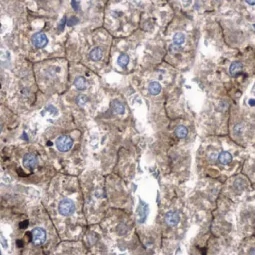Metastases represent the most lethal development of breast cancer and other malignancies. In order to more effectively treat distant disease, a better understanding of the oncogenic mechanisms that drive primary versus metastatic lesions is required. A clearer delineation of these processes should offer improved therapeutic strategies against cancer cells that have spread beyond the primary site.
A new study by Jiang et al. provides some clarity on this issue using a clever approach. The authors performed mammary-specific Sleeping Beauty (SB) transposon-mediated mutagenesis screens in treatment-naïve female mice on a defective retinoblastoma (RB) tumor suppressor gene background to classify oncogenic drivers (1). Their analysis of gene-centric common insertion sites (gCIS) identified primary (P)-enriched tumor drivers (e.g., TGFβ, EGFR, and STAT3), metastasis (M)-enriched drivers associated with Rho-signaling, ubiquitination and RNA-processing hubs (e.g. RhoA and PI3K), and drivers shared (S) by both the primary and metastasis compartments that involve a MET-RAS network and subtype-specific factors (e.g., loss of Rb or p53, and gain of MET, ER, and HER2). The S-drivers were found to cooperate with the specific oncogenic networks to promote primary or metastatic tumor growth both in mouse and human clinical cohorts (1). The researchers suggest that targeting two distinct subtype-specific S-drivers or S- plus M-drivers may represent a new therapeutic paradigm for preventing disseminated disease.
GeneTex continues to expand its catalog of well-validated antibody reagents for cancer research, which includes the SRGAP2 antibody (GTX130797) cited in the Jiang et al. study. For more details, please see the highlighted products below and visit our website at www.genetex.com.
Highlighted Products
|
|
|
|
|
![Her2 / ErbB2 (phospho Tyr1248) antibody [HL1466] (GTX636940) Her2 / ErbB2 (phospho Tyr1248) antibody [HL1466] (GTX636940)](/upload/media/MarketingMaterial/Newsletter/2023/SRGAP2/landingPage_img_255x255_05.webp) |
Her2 / ErbB2 (phospho Tyr1248) antibody [HL1466] (GTX636940)
|
  |
|
|
|
|
Reference:
- Nat Commun. 2023 Jul 18;14(1):4313. doi: 10.1038/s41467-023-39935-y.


![Rb antibody [HL2465] (GTX638814) Rb antibody [HL2465] (GTX638814)](/upload/media/MarketingMaterial/Newsletter/2023/SRGAP2/landingPage_img_255x255_02.webp)
![EGFR antibody [GT133] (GTX628887) EGFR antibody [GT133] (GTX628887)](/upload/media/MarketingMaterial/Newsletter/2023/SRGAP2/landingPage_img_255x255_03.webp)
![p53 antibody [HL2242] (GTX638291) p53 antibody [HL2242] (GTX638291)](/upload/media/MarketingMaterial/Newsletter/2023/SRGAP2/landingPage_img_255x255_04.webp)
![Her2 / ErbB2 (phospho Tyr1248) antibody [HL1466] (GTX636940) Her2 / ErbB2 (phospho Tyr1248) antibody [HL1466] (GTX636940)](/upload/media/MarketingMaterial/Newsletter/2023/SRGAP2/landingPage_img_255x255_05.webp)
![STAT3 antibody [HL1134] (GTX636400) STAT3 antibody [HL1134] (GTX636400)](/upload/media/MarketingMaterial/Newsletter/2023/SRGAP2/landingPage_img_255x255_06.webp)